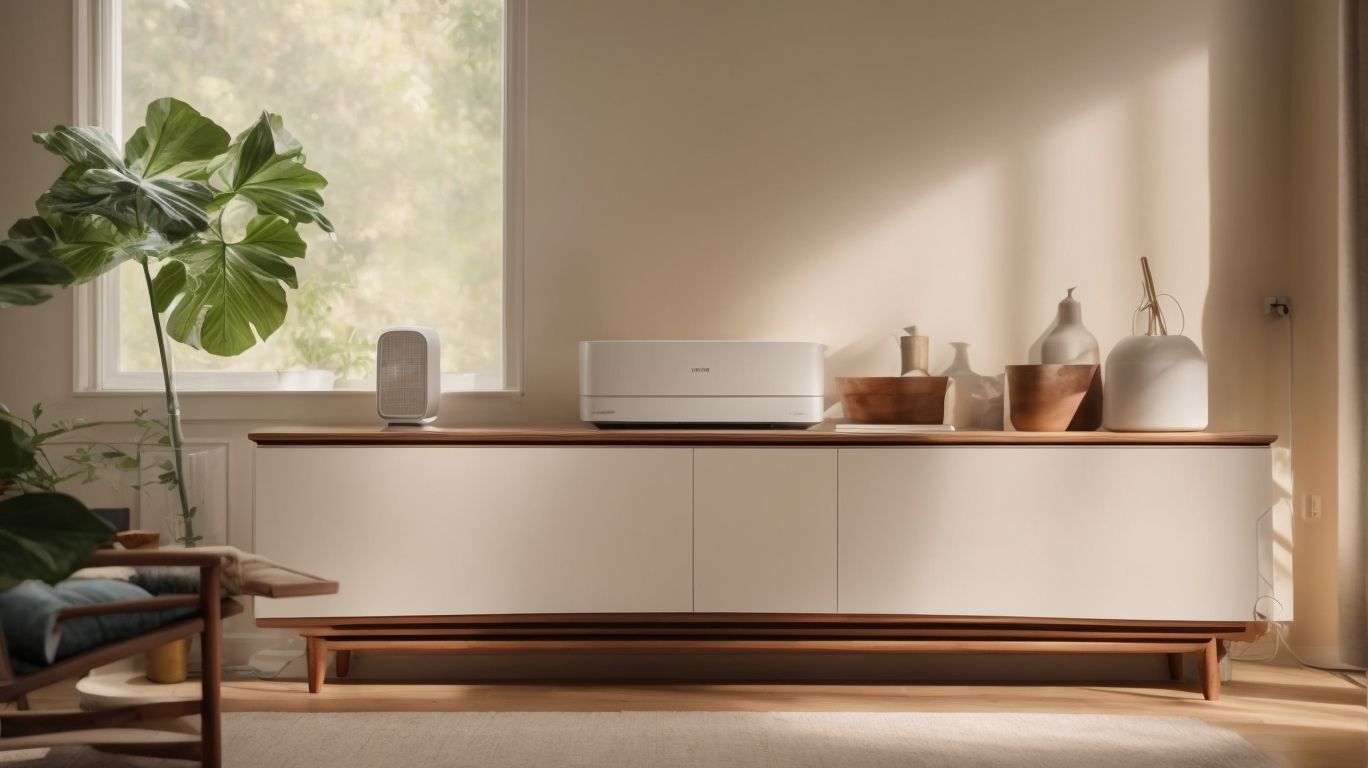Gone are the days when manual adjustments to thermostats or fixed schedules were needed to cool our homes. AI-powered AC systems are now an integral part of modern smart homes. These clever systems have revolutionized comfort and convenience.
By using AI algorithms, AC systems can adjust to preferences and optimize energy use. They can even learn from our behaviour patterns, predict when we will be home or away, and adjust the cooling accordingly. Providing accurate info about our daily routine during the setup is essential for optimal performance.
Regular maintenance is also key, as clean filters and proper ventilation help maintain efficiency. Periodic software updates keep us up-to-date with the latest AI tech. Smart homes and AI may have replaced the butler, but they still can’t prevent our milk from spoiling!
Understanding Smart Homes and AI
When it comes to smart homes and AI, there are lots to consider. Smart homes with advanced technology have become super popular. They make daily life easier by automating tasks and giving convenience.
A key part of a smart home is an AI-powered system. It uses complex algorithms and machine learning to get data from sensors and devices. It analyses the data to make decisions and adjust to needs and preferences.
AI in modern AC systems has changed how we use cooling systems. They can monitor temp, humidity, and occupancy. This means they can adjust their settings for perfect comfort and less energy use.
Smart AC systems can be controlled remotely through apps or voice commands. Homeowners can regulate coolness even when away. Imagine having a cooled house on hot days or turning off the AC with a voice command while lying down – all thanks to AI!
Plus, these AC systems can learn from preferences and adjust accordingly. Like, if you always want lower temps at certain times, the system will do it, without extra input. Finally, an excuse to blame the robots when your house feels like the Arctic or the Sahara!
The Benefits of AI in Modern AC Systems
Smart homes are transforming how we live, and AI plays a big role in modern AC systems. AI brings many benefits to enhance comfort, efficiency, and sustainability.
- Optimized Cooling: AI algorithms gauge data from sensors to comprehend user preferences and make automated changes to keep ideal indoor temperatures. This equals personalized comfort and energy savings.
- Energy Efficiency: Smart ACs with AI can make energy use more efficient by understanding occupancy patterns and changing cooling accordingly. This leads to reduced energy use, lower bills, and a smaller carbon footprint.
- Remote Control: AI-powered AC systems can be controlled from a distance via smartphone apps or voice assistants. This allows users to change temperature settings or turn off the system when not needed, encouraging convenience and energy efficiency.
The potential of AI-driven AC systems is even greater! As technology progresses, features such as predictive maintenance alerts, self-diagnosis capabilities, and renewable energy integration can be expected. Beat the Summer Swelter with a smarter AC system today!
For instance, in London, where summer days can be scorching, efficient cooling is essential. Sarah, a resident, installed an AI-based AC system in her apartment. The system examined temperature patterns throughout the day and changed cooling accordingly. Not only did this give Sarah a comfortable living space, but also significantly decreased her energy bills.
These AI-enabled AC systems are so smart they could even manage your life!
Examples of AI-Enabled AC Systems
Modern AC systems have transformed temperature control in our homes. With new tech, AI-enabled systems have become the ultimate solution for cool and energy-efficient spaces.
Intelligent systems, like Nest Learning Thermostat and ecobee smart thermostat, use AI to learn habits and adapt. They analyze data from sources such as weather and occupancy to adjust cooling and save energy.
AI-enabled AC systems can detect people in the room and adjust the temperature accordingly. Sensors or facial recognition tech identify occupants, saving energy and creating a personalized experience. Portable air conditioners make it easier for people to enjoy this personalized atmosphere on the go.
AI-enabled systems integrate with other smart devices, such as speakers, phones, and IoT – making it simple to adjust temperature with voice commands.
For those looking to embrace this technological marvel, here are some tips:
| 1. | Research the brand and make sure it offers reliable performance, compatibility, and regular updates. |
| 2. | Ensure your Wi-Fi is secure and strong enough for the system’s connectivity. |
| 3. | Give feedback on its performance, as the more data it gets, the better. This way it will fine-tune itself and provide a comfy living environment. |
Potential Challenges and Considerations
Smart homes are changing our lives, bringing ease and effectiveness. AI tech is making them smarter than ever. But, we have to think about potential challenges. Privacy and data security is one. Developers and makers should prioritize user privacy with strong security measures, like encryption protocols and secure authentication methods.
Another worry is losing control of our own homes. AI-powered ACs can automatically switch settings according to occupancy and weather. Some people might not like this. So, designers should create systems with manual overrides and show the decision-making process clearly.
Interoperability between devices is another challenge. Smart appliances and systems from different makers might not work together. To fix this, industry standards need to be set for seamless integration.
We need technical support too. AI systems can still have glitches. Setting up customer support channels will give homeowners peace of mind.
Stakeholders in the smart home industry should work together to tackle these issues. Open communication and collaboration will help to come up with solutions.
User education is also important. People should get clear and accessible information about AC systems. This will help them make informed choices and use their smart homes better. They can also see more for tips on conserving energy and other information.
The Future of AI in AC Systems
AI is now incorporated into AC systems. It can revolutionize our home cooling. Algorithms can optimize energy, predict temperature shifts, and adapt settings. This boosts comfort, decreases energy usage, and lowers bills.
AI-powered ACs can learn preferences and patterns to make the ideal indoor climate. They use sensors to detect occupancy and adjust cooling. For instance, if a room is empty, it can turn off or reduce cooling to save energy.
It can also use weather forecasts to make real-time modifications. By analyzing climate data, it can anticipate when temperatures will rise or fall. This keeps the house comfy without wasting energy.
AI-powered ACs can link with other smart devices. It can work with thermostats, sensors, and voice assistants. This integration offers smooth control and home automation.
To maximize AI in your AC system, make sure components are compatible and configured. Update software for better features. Enjoy a chilled future with automated temperature control.
Conclusion
AI evidently plays a big role in today’s AC systems. Its integration has revolutionized home cooling, bringing more comfort and energy efficiency.
Smart ACs can now adjust temperature settings according to occupants’ habits and preferences. This gives great comfort, as well as reduces energy waste.
AI algorithms study data from various sensors to watch indoor and outdoor conditions. When sudden weather change or an open window is detected, the AC adjusts its operation to maintain comfort and cut down wastage.
AI-powered ACs can also optimize air quality, monitoring pollutant levels and regulating ventilation. This creates a healthier living space, reducing allergens and improving air quality.
In addition, AI offers predictive maintenance for AC units. It continuously checks performance and finds potential issues before they worsen. This increases longevity and cuts costs for homeowners.
Stanford University researchers created an AI system to precisely predict peak electricity demand. By analyzing weather patterns and energy consumption trends it helps save on electricity bills by optimizing AC usage during off-peak times.

